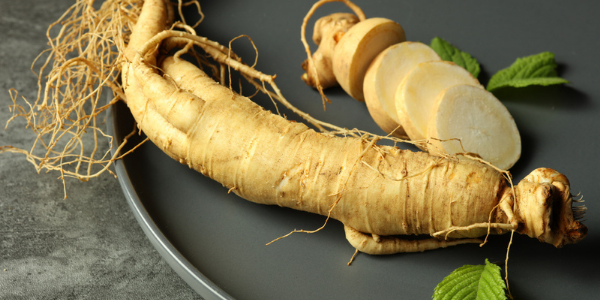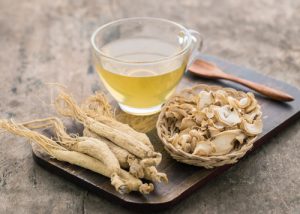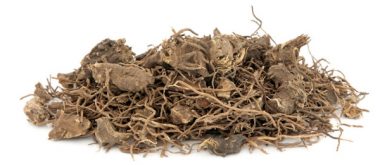Are you experiencing menopausal symptoms? You’re not alone. Millions of women go through this natural process every year. While many treatments are available for managing these symptoms, one option gaining popularity is ginseng. Let’s take a closer look at this herb and see how it can help manage menopausal symptoms.
What Is Ginseng?
Ginseng is a perennial herb that is native to Asia. It is a short plant with fleshy roots.
It contains two significant compounds: ginsenosides and gintonin. These compounds are responsible for the herb’s beneficial effects. It has been used for centuries as a natural remedy for various health conditions.
Ginseng and Menopausal Symptoms
Women undergoing menopause experience a wide range of symptoms, including hot flashes, night sweats, mood swings, vaginal dryness, decreased sex drive and insomnia. Ginseng is known to help relieve many of these symptoms.
The active compounds in ginseng stimulate the body’s estrogen receptors, which help to alleviate menopausal symptoms. It also helps to:
Reduce stress and anxiety: Ginseng has a calming effect and can help to reduce stress and anxiety. This can be helpful for women who are struggling with mood swings during menopause. It improves blood circulation and reduces inflammation. This further reduces oxidative stress, which is a factor in menopausal symptoms.
- Increase energy levels: Ginseng fights fatigue and promotes energy production. This can be beneficial for women who are feeling worn out from the symptoms of menopause.
- Improve brain function: The brain controls memory, behavior and mood. According to a recent study, people who took the herb for four weeks exhibited a significant improvement in their mental health, social functions and mood.
- Enhance physical activity: Most women going through menopause have reduced libido. This herb can help to increase sex drive. It also helps improve physical activities by increasing energy production in cells.
- Lowers hot flash frequency: Hot flashes are the most common symptom of menopause. A study showed that women who took ginseng for 12 weeks had a significant reduction in hot flash frequency.
- Promote better sleep: Insomnia is a significant problem for many women during menopause. This herb can help to improve sleep quality and duration.
How Safe Is Ginseng?
It is a safe herb and does not have any major side effects. However, it can interact with other medications, so it is essential to speak with your doctor before taking ginseng if you are taking other medications. For instance, it may reduce the effectiveness of anticoagulant drugs. Additionally, people taking diabetes drugs should monitor their blood sugar levels to ensure they don’t get too low.
However, extended use is likely to reduce its effectiveness in the body. So, if you’re considering taking it for menopausal symptoms, make sure to cycle off of it every few months.
Recent Study
In a recent study, postmenopausal women were recruited for a study in Korea. One of the elements of the inclusion criteria was having menopausal symptoms. The study was designed to investigate the effects of red ginseng on menopausal symptoms. The subjects were randomly divided into the treatment group and the control group. The treatment group received a 1,000 mg dose of red ginseng extract, while the control group received a placebo.
The results showed a significant difference between the two groups in reducing menopausal symptoms. The treatment group significantly reduced hot flashes, night sweats and anxiety symptoms. They also had an improvement in their mental health score and physical activity score. There was no significant difference between the two groups in improving sex drive or sleep quality.
This study shows that this herb is helpful in reducing menopausal symptoms. If you are experiencing menopausal symptoms, speak with your doctor about whether taking this herb may benefit you.
In conclusion, if you’re experiencing menopausal symptoms, ginseng may be a good option for you to consider.

 Reduce stress and anxiety: Ginseng has a calming effect and can help to
Reduce stress and anxiety: Ginseng has a calming effect and can help to 



